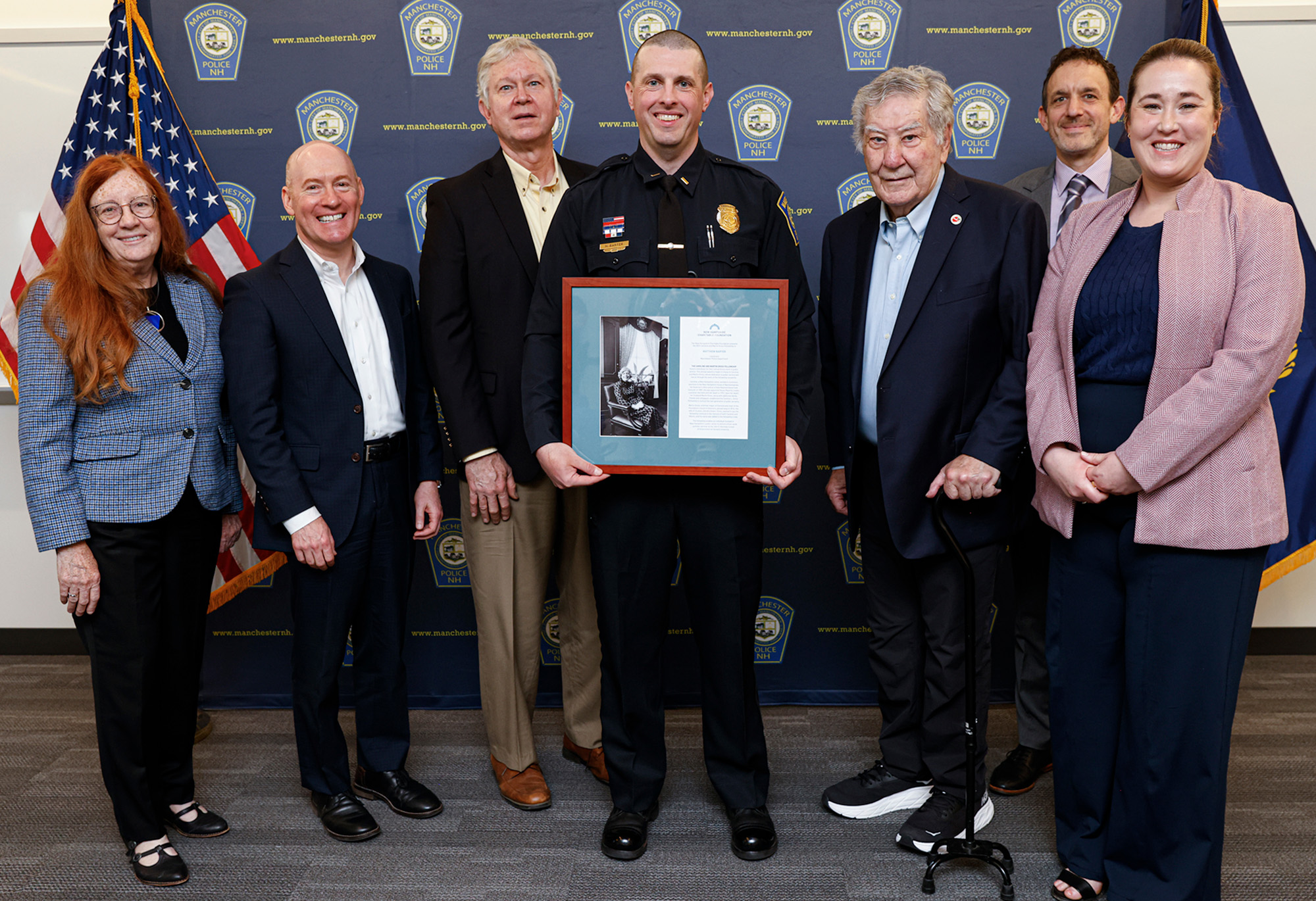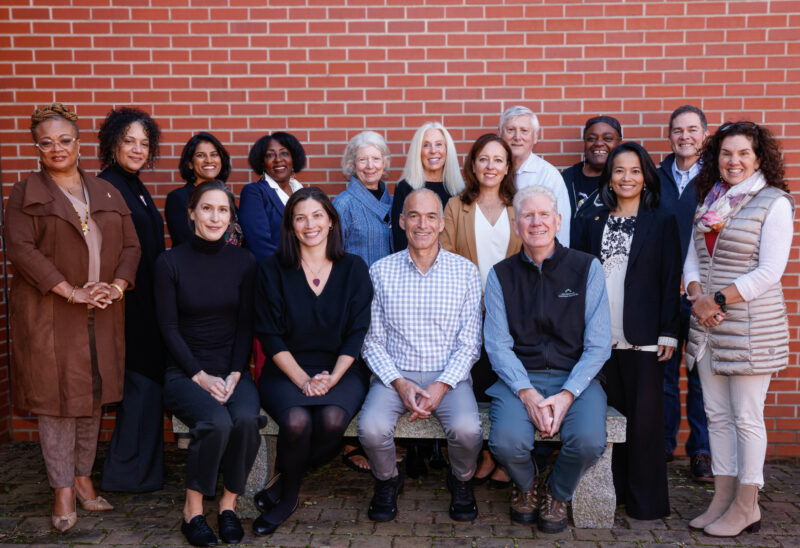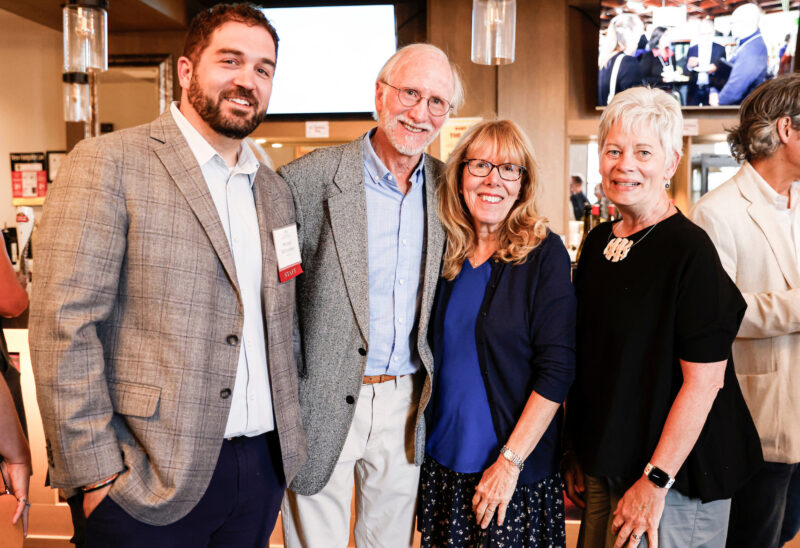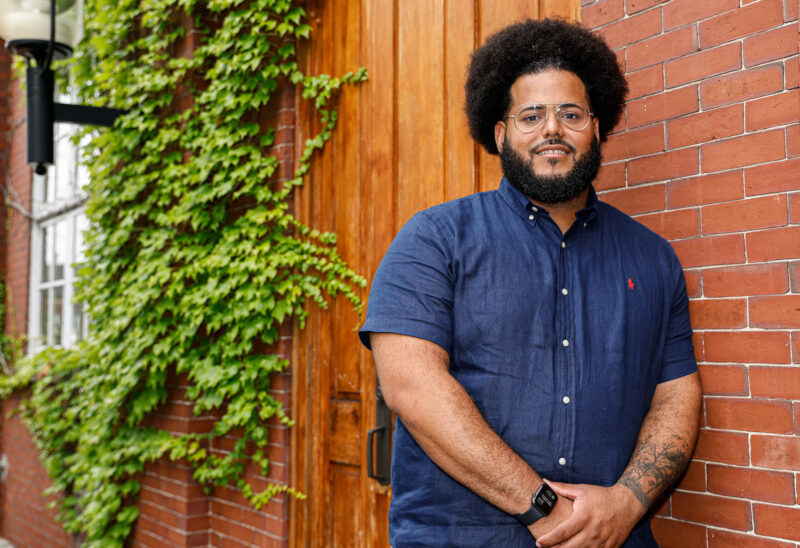As a police officer, he’s always wanted to be a leader.
Through his nearly 20-year police career, the Manchester Police Department lieutenant has earned accolades and held numerous leadership roles in the department, in the community and in national law enforcement circles. Now, he has secured the opportunity to further enhance his leadership skills by sharing experiences and learning from public servants from around the world.
Barter has been named the 2025 recipient of the Caroline and Martin Gross Fellowship, a program of the New Hampshire Charitable Foundation.
The honor will enable him to attend the international, three-week Senior Executives in State and Local Government program at Harvard University’s John F. Kennedy School of Government in June.
The fellowship was established at the Foundation in memory of the late New Hampshire House Majority Leader Caroline Gross and the late Concord Mayor Martin Gross to honor dedication to public service.
The Foundation awards the fellowship annually to an extraordinary elected or appointed official in state or local government who demonstrates leadership ability and the highest standards of performance in public service.
Barter is the first police officer to receive the fellowship.
To him, being a police officer means being a community leader.
“The police are generally the face and the ones that people have interaction with most often,” he said. “You’re right there. You’re in the community every single day. And if we want to see change, and we want to make it a safe place to live and a safe place to come to work and to visit, we need to lead the way. That’s our job. That’s our responsibility.”
He also recognizes that the police must create and nurture partnerships with other city departments, community organizations and residents to achieve the best results in reducing crime and improving the city.
Barter has worked his way up the ranks from patrol officer to lieutenant, where he currently supervises Manchester’s police day shift. He was chief of staff for former Chief Allen Aldenberg, who wrote that Barter’s leadership style is “grounded in collaboration and fostering partnerships across different sectors of government, and he has a unique ability to navigate complex situations with integrity and clarity.”
Barter also has become an expert on innovations that enable police to do more than react to crimes He is a strong proponent of “evidence-based policing,” which emphasizes the use of research, data, and rigorous evaluation to guide policing strategies, improve public safety and promote greater accountability within police organizations. Using this approach, Manchester and other communities focus police resources and community partners to address crime or the environment that can lead to it by analyzing crime statistics and studying local crime trends.
“As a young cop, when I wasn’t on calls, I always wanted to know, ‘Where can I go to be most effective as a cop? Where can I go to be impactful to stop cars from being burglarized,’ whatever it might be, which drove me toward leveraging the data,” he said.
Studying crime statistics and police reports opened a new world of data and analytics.
“You ask ‘What’s the data telling us? What is the problem here? What’s a response that we can implement?’ And hopefully it’s an evidence-based response – something that the research shows works,” Barter said. “Then we ask, ‘Are we achieving the outcomes we want?’ And if it doesn’t work, then what else can we do? If it does work, how do we double down on it?”
He said Manchester’s response to gun violence was a successful use of evidence-based policing and attention to community concerns to develop a police-led partnership that prompted a marked decrease in shootings, especially among 14- to 24-year-olds.
He cited a problematic alleyway in Manchester where overgrown brush, abandoned cars, no lights and a long wooden guardrail that acted as a bench created an environment that developed into a dangerous “open-air drug market.”
The police stepped up enforcement and arrested key individuals, while the Department of Public Works installed lights, cleared the brush, hauled away the vehicles and took out the unneeded guardrail. Barter also called on social service organizations and community groups to reach out to young people who tended to be gun victims or witnesses to crimes, as well as potential offenders, to try to engage them and offer resources to interrupt cycles of violence.
“To this day, that alley remains clear and not problematic for the most part,” he said. “And I think all those things together is the key. It’s not just one piece or one element that solved the problem. It was everything together.”
Barter said he has found partnerships with Manchester schools, the city Health Department, other city departments, residents and community groups to be very valuable, so he is excited to hear first-hand at the Harvard program about how leadership colleagues from around the world forge collaborations to address community concerns.
“Considering the immense amount I’ve learned here in Manchester, I can just imagine it’s going to go beyond that with this group,” he said.
His goal is to apply new insights to better serve his police department and community.
“I hope to just continue to be able to lead and develop and drive change,” he said. “I fancy myself as a change agent. You know, I like to mix things up.”
















